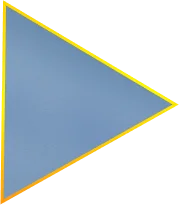
Share This Post
In Luyten’s Rift, author Jacob McCabe constructs a rich and thrilling narrative that fuses the exhilaration of space colonization with the emotional and moral complexities of human ambition. Set against the enigmatic backdrop of LX-497, an alien world brimming with mystery and peril, the novel explores not only humanity’s desire to expand its reach across the stars but also the costs of that desire. This is political science fiction at its most gripping—intensely dramatic, philosophically probing, and packed with high-stakes action. If you are drawn to stories that ask hard questions amid breathtaking alien landscapes, Luyten’s Rift is an essential addition to your reading list.
The novel begins with the departure of the Intrepid, an exploratory vessel captained by the strong-willed and battle-tested Eva Rostova. She is supported by a tightly knit team: Jian Li, the ship’s brilliant and reserved systems analyst; Dr. Aris Thorne, a charismatic xenobiologist with an insatiable curiosity; and Sgt. Marcus Riley, a veteran soldier who has seen too much and trusts too little. McCabe doesn’t reduce these characters to archetypes—instead, he gives each a compelling personal arc that evolves as the mission spirals into chaos. Their interactions bring heart and tension to a story already rich with external conflict.
Upon arrival at LX-497, the crew is awestruck by the alien beauty around them. Bioluminescent forests, sentient crystalline structures, and vast, echoing caverns that seem to hum with ancient power create an atmosphere that is both wondrous and ominous. But this awe quickly gives way to dread when the crew discovers evidence of a long-lost civilization—and a powerful alien artifact at the heart of it all. The artifact, a black, glyph-covered sphere, appears to channel energy on a scale previously unknown to humanity. It could revolutionize human civilization—or destroy it.
As rival interests within the crew and on Earth seek control of the artifact, the mission descends into a tense and often volatile struggle between survival, discovery, and political exploitation. McCabe weaves a taut and deeply layered narrative that questions the ethics of exploration, the corrupting nature of power, and what humanity becomes when confronted with the truly unknown. Far from a straightforward space adventure, Luyten’s Rift challenges the boundaries of the genre by exploring the psychological and philosophical costs of pushing beyond the edge of human experience. With each chapter, the mystery surrounding the alien artifact grows, unraveling both the secrets of the cosmos and the darker truths about those seeking to uncover them.
Beyond its intense and gripping plot, Luyten’s Rift serves as a profound meditation on humanity’s place in the universe. It scrutinizes the traditional ideals of exploration—curiosity, courage, and discovery—by contrasting them with the all-too-human traits of ambition, fear, and self-interest. What begins as a noble mission to chart the unknown quickly spirals into a battle of competing agendas, as the crew splinters under pressure. Ideological divisions, mistrust, and the seductive lure of power fracture any sense of unity. As political factions within the team vie for control, the novel lays bare the fragility of cooperation and the ease with which noble goals can be co-opted by personal or nationalistic ambitions.
Ultimately, Luyten’s Rift asks its readers to consider the cost of ambition and the moral sacrifices that often accompany great leaps forward. It forces a reckoning with the uncomfortable question: in seeking to understand the universe, might we lose sight of what it means to be human?
What truly elevates Luyten’s Rift is its masterful use of character-driven tension. Each key figure brings a unique perspective and emotional weight to the story. Captain Rostova stands out as a figure of composed leadership, embodying a blend of rational control and moral uncertainty. Li, the mission’s lead engineer, contributes not only technical brilliance but also a deep philosophical skepticism that adds complexity to the crew’s decisions. Thorne, the scientist most fascinated by the alien discovery, balances his fervor with an underlying dread, capturing the dual nature of encountering the unknown. Meanwhile, Riley, the team’s hardened security officer, offers a grounded viewpoint shaped by discipline, loyalty, and caution. Their interactions, fraught with unspoken fears and growing mistrust, create a web of relationships that feels both authentic and emotionally charged.
In the tradition of the best science fiction, Luyten’s Rift doesn’t merely tell a compelling story—it constructs a fully realized universe. The novel’s commitment to scientific plausibility, its intricate political backdrop, and its emotional resonance all work in harmony to deliver a reading experience that is both intellectually and viscerally engaging. Whether traversing the alien terrain of LX-497, deciphering cryptic transmissions, or confronting the limits of human understanding, every scene pulses with urgency and wonder.
For readers who appreciate thought-provoking exoplanetary adventure, layered political drama, and high-concept speculative fiction, Luyten’s Rift stands out as a rare gem. It’s a story of survival, discovery, and moral reckoning that lingers long after the final chapter.
Get ready to journey into the Rift. You won’t come out the same.
